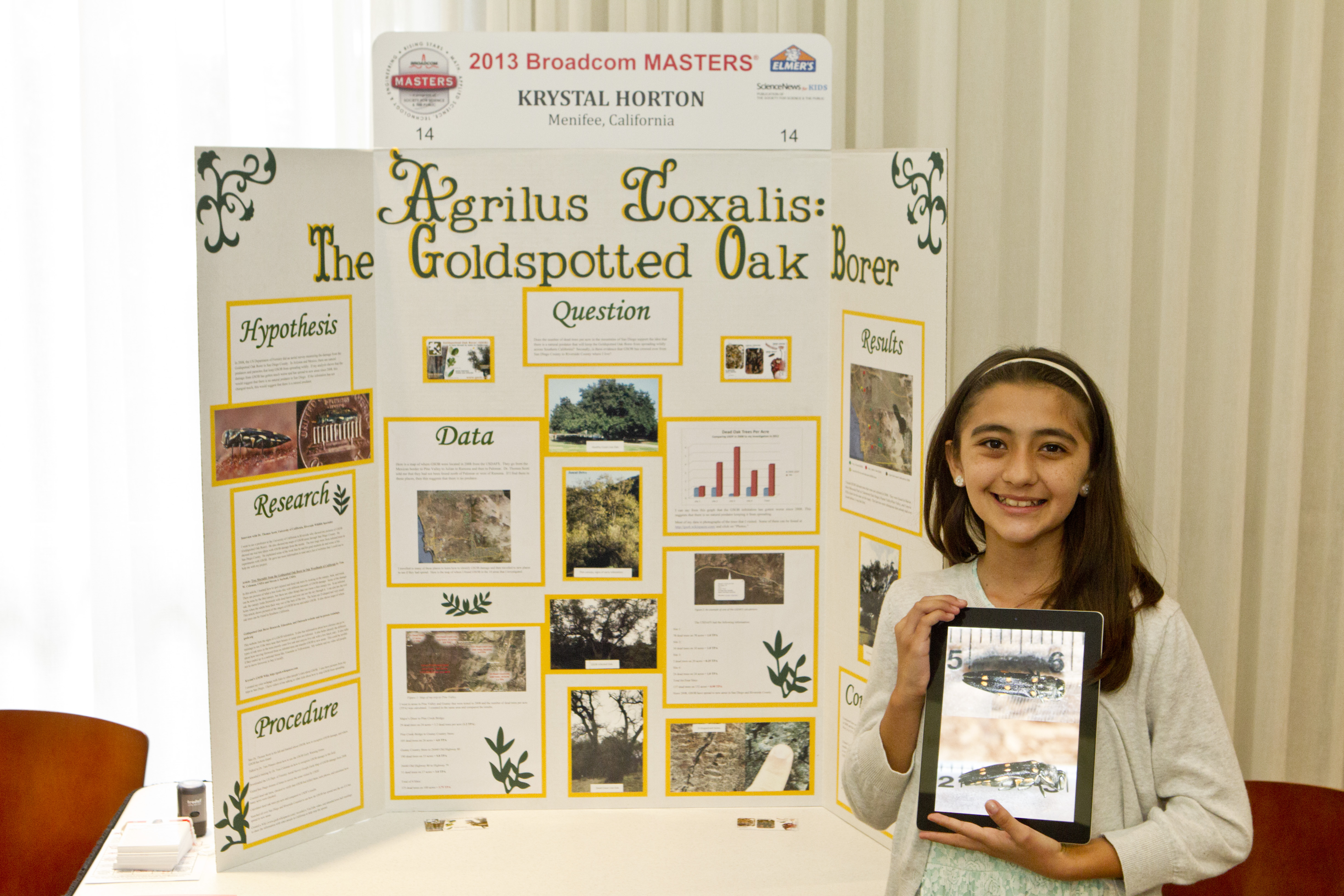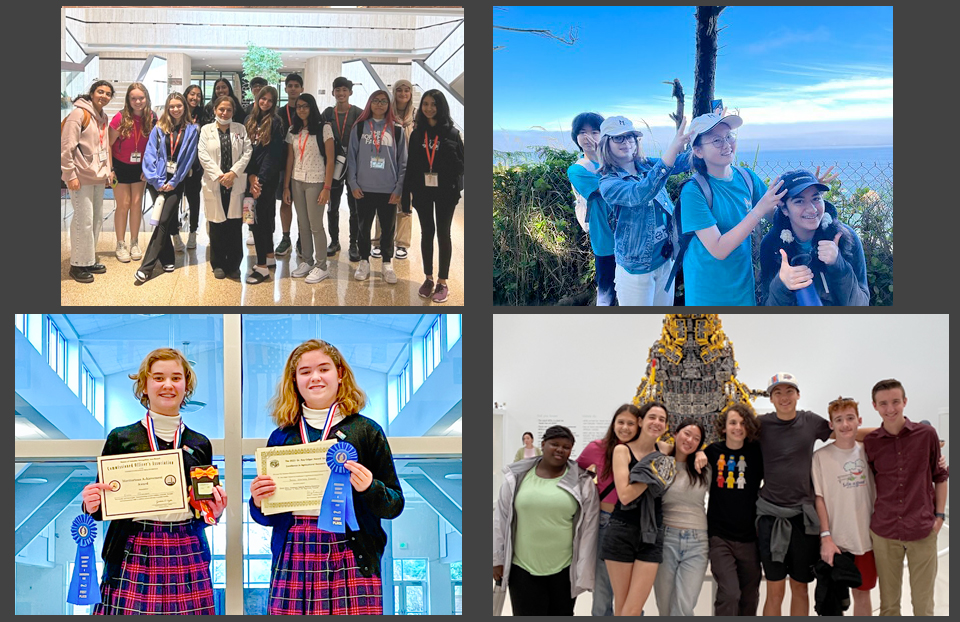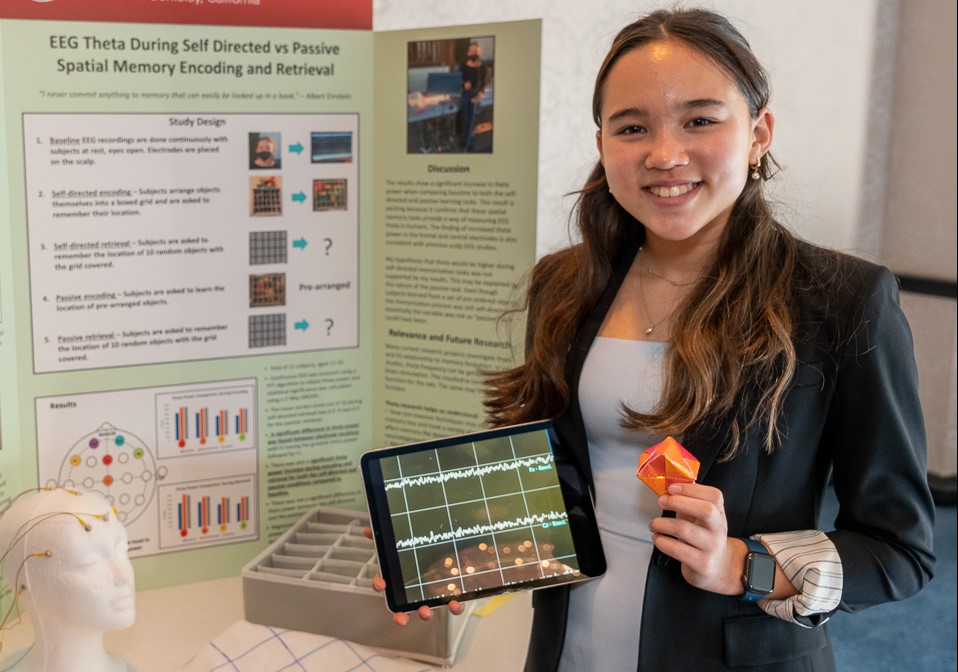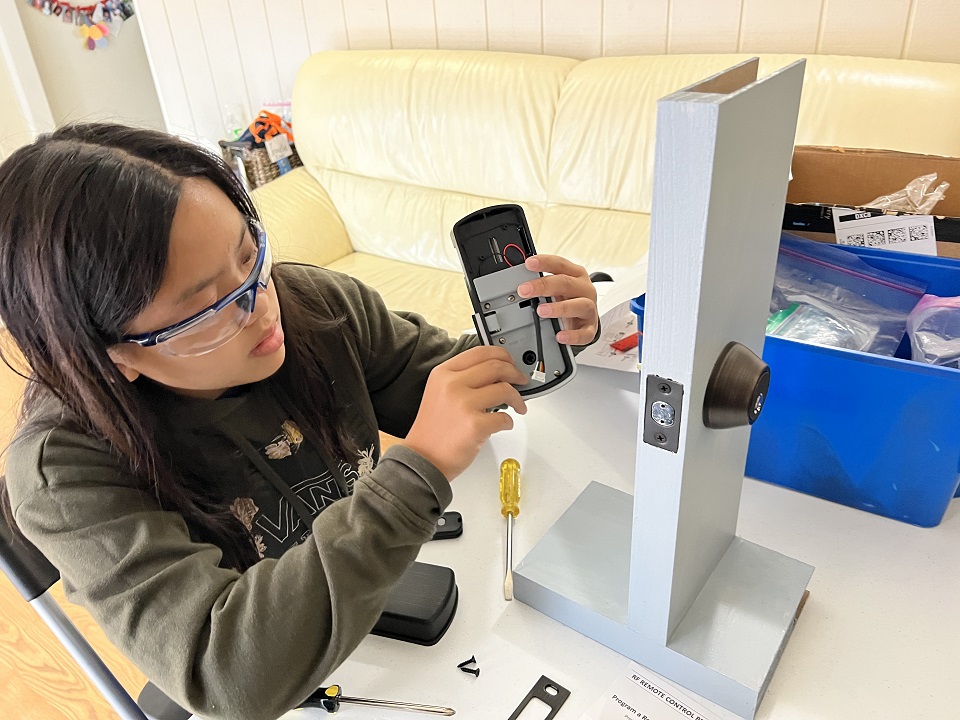Broadcom MASTERS, Broadcom MASTERS International
Rising Star to Attend Broadcom MASTERS International

Krystal Horton won a Rising Star award at the 2013 Broadcom MASTERS. The Rising Star award includes an opportunity to attend Broadcom MASTERS International, being held in Los Angeles this May during the Intel International Science and Engineering Fair.
What were your most memorable moments from the 2013 Broadcom MASTERS?
Absolutely, my most memorable moment was meeting the president of the United States and touring the Oval Office. This was a once-in-a-lifetime opportunity and I cannot even explain how excited I was!
Another memorable opportunity for me was meeting kids who were a lot like me. The other Broadcom MASTERS finalists were from all over the country and were amazing, brilliant, nice people. I still keep in touch with many of them today through social media.
One of my hobbies is experimenting with a miniature programmable computer called the Raspberry Pi. In fact, online, I’m known as Raspberry Pi Kid, my blog is http://raspberrypikid.wordpress.com, and on Twitter I’m known as @kid_pi. In Washington, DC, I was able to meet the inventor of the Raspberry Pi, Eben Upton. I talked with him for well over two hours, took my picture with him, and got his autograph too!
Another amazing moment was when I got to meet Jeanette Epps, an astronaut. As a small child, I wanted to be an astronaut and that was my motivation for learning about science, watching science television, reading science books, and doing science experiments. I owe my participation in Broadcom MASTERS to the fact that I wanted to be an astronaut. So, meeting a female astronaut was really exciting for me. I have a collection of astronaut autographs and I got one more.
We also were able to participate in some really great science activities. We built wind turbines and roller coasters while competing against other groups for the best design. We programmed games on a Raspberry Pi and we played a game called “Nuclear Waste.” It was fun interacting with other science-minded kids this way.
How did participation in Broadcom MASTERS affect you?
As a result of my participation, I’ve really become more confident in my public speaking. We practiced, played speaking games, and answered judges’ questions throughout the week. We all got over our fears of public speaking and got better and better each day. This is going to help me with science fair, job interviews, getting into college, and everything throughout my life.
I also have a goal of getting more kids interested in science. Since my trip to DC, the number of people reading my blog has increased greatly and this means that I might be inspiring other kids to love science and engineering too!
What advice do you have for future Broadcom MASTERS?
I would tell future Broadcom MASTERS finalists to enjoy every moment because it goes by very, very fast. At first, I thought that it would be all about the competition like a typical science fair is. But, there was so much more to it. You will have the opportunity to meet people from all over the country, and all over the world if you win the Rising Star Award. Take advantage of these opportunities to learn from other people and teach other people too. These are some of the smartest kids in the country and you have the opportunity to get to know them for a week or more. Do it!
Can you provide a short description of the research you presented?
I studied a beetle called the Goldspotted Oak Borer (GSOB) that has killed more than a hundred thousand oak trees in Southern California. I was trying to figure out whether the GSOB infestation is spreading and accelerating. I did this by going back to an area that the US Forestry Department studied in 2008 and I calculated dead trees per acre again to compare with their numbers. I wanted to see if there were more dead trees and if the area the dead trees were in had spread. Unfortunately, the answer to both of those questions was “yes.” The infestation has gotten worse and has spread even farther. It has even spread into the county where I live. My research shows that there is no natural predator for GSOB in Southern California, like there is in Arizona and Mexico.
Are you continuing your research?
I am not formally continuing my research but I still check oak trees when I go camping and hiking. I’m trying to set up an opportunity for kids at my school to get trained to spot GSOB damage and then go out like a GSOB army looking for infested trees in my area. But this won’t be an official science fair activity, just because I love trees and the animals that depend on them.
This year, I changed my topic because I spent a lot of time preparing for Broadcom MASTERS, so I didn’t have as much time to do a deep project. I also switched schools to a very accelerated STEM school (Western Center Academy), so I need to keep up with my studies. I did my project this year on Dispositional Attitude, a measure of how positive or negative a person responds to new things.
Two researchers created a survey on dispositional attitude and spent years validating that it actually works. I wanted to use the survey to see if I could give information to advertisers or politicians about how to make their commercials or campaigns. To do this, I wanted to see if certain groups were more positive or negative than others. I got 665 people to take the survey and I broke them into groups by state, age, political party, level of education, etc. In most of the groupings, I found that people’s attitudes followed an almost perfect bell curve, with very few people more than one or two standard deviations from the average. The only grouping that seemed to show a pattern was education level. It appears that the more education a person has, the more positive their attitude. If you’d like to take the survey, you can find it at http://tinyurl.com/KrystalSciFair. I’ve started talking to a professor at the local university, Dr. Keremane, about a project for next year involving a pest that damages citrus groves.
What are you working on now that is STEM related?
Wow, what a big question! First, I’m on a competitive robotics team, the Lego/FIRST robotics FTC competition. My team of rookie 7th graders just qualified to go on to the Los Angeles regional tournament. We’ve placed 2nd, 8th, and 6th out of 24 teams in our first 3 qualifying tournaments against mostly high school teams. We’ll be competing on February 22 against about 45 other teams to try to make it to the Super Regionals. I’m also in a robotics class at school.
I already mentioned that I program my Raspberry Pi. I’ve created a media center with it, learned to program in Scratch and Python, learned how to spin servo motors so I can start creating robots, created blinking LEDs, and blogged about all of my adventures. I also read a lot about other people’s Raspberry Pi projects looking for something cool to do and I tweet about some of the things I find. As part of working with my Pi, I’ve learned how to solder, use a multimeter, program computers, use Linux, and control a computer through the terminal.
I have started a new video series on YouTube called, “Cool Science Experiments for Kids.” I feature different cool devices, demonstrations, or experiments in each episode and explain the science behind them. For each episode, I also create a blooper video full of all of my mess-ups. You can see my first 4 videos here: https://www.youtube.com/channel/UC6XMvhhBDGbpEQd7QrbzpSw
The STEM school that I attend just bought a 3-D printer. So, I have also played around with CAD and 3-D printing. It’s not as easy as it sounds to get prints to come out properly. I’ve printed molds to make a solid chocolate Dr. Who TARDIS, mammoths (my school’s mascot), a “sonic screwdriver” (it’s a Dr. Who thing), dinosaurs, robot parts, and more.
I get asked to speak at a lot of science fair events and science conferences. I presented at two Science Fair Expos this year, I video-conferenced with a coder-dojo in Washington DC, and I presented to a big group of science teachers about why all kids should do science.
For fun, I also launch rockets, use snap circuits, take appliances apart, put prohibited items in a microwave (do NOT try this at home), fly neon rubber band helicopters, look at planets through a telescope, and take lots of nature photographs. I told you I love science!


